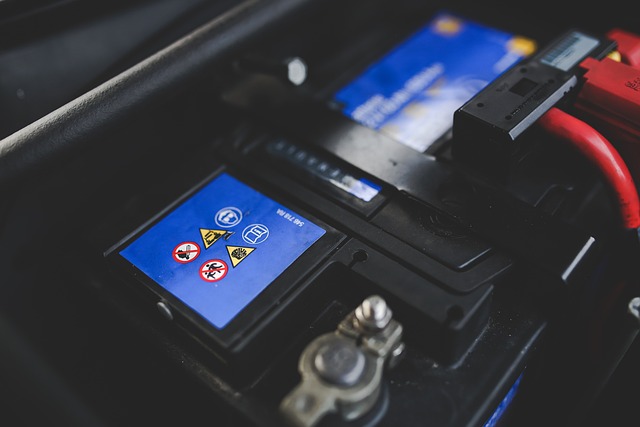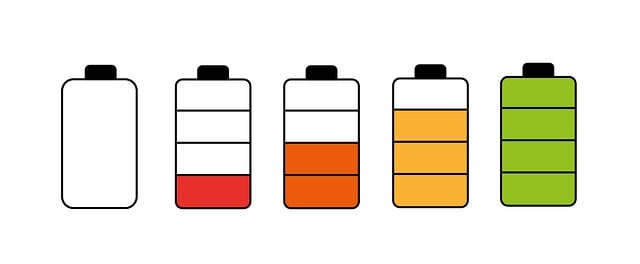Ensuring the proper management of batteries is crucial for environmental protection and economic stability. Improper disposal can lead to heavy metal pollution, harming wildlife, contaminating agricultural lands, and posing health risks to humans. To mitigate these issues, it's important to replace batteries responsibly, with a preference for rechargeable options that can be recycled. Government regulations play a vital role in mandating sustainable practices by manufacturers and providing incentives for consumers to recycle. The advancement of battery technology has fortunately provided more environmentally friendly alternatives, like lithium-ion batteries, which are less hazardous and more amenable to recycling. These modern solutions have significantly reduced the environmental impact associated with energy storage systems, promoting a circular economy and contributing to a greener planet.
3 Best Ways Improper Disposal Harms the Environment
Every year, countless batteries reach their end of life, and the manner in which we dispose of these power sources can have profound repercussions on our planet’s health. The improper disposal of batteries, particularly replaceable ones, poses significant environmental risks that extend beyond the visible. This article delves into the detrimental effects of such practices, ranging from pollution of land and water ecosystems to the degradation of soil quality and the threat to wildlife and agriculture. It also examines the economic implications of poor battery recycling and the critical role of government regulations in safeguarding the environment. Furthermore, it highlights innovative strides in battery technology that lessen environmental impact and the importance of community initiatives for sustainable battery management. By understanding the best practices for responsible battery replacement and disposal, as well as the benefits of selecting eco-friendly batteries and utilizing recycling options, we can all contribute to a greener future.
- The Hazards of Improper Battery Disposal on Land and Water Ecosystems
- Acidic Lakes and Soil Degradation: The Environmental Impact of Dumped Batteries
- The Persistent Threat of Heavy Metals in Ecosystems from Replace Battery Waste
- How Improper Battery Disposal Affects Wildlife and Agriculture
- The Economic Consequences of Poor Battery Recycling Practices
- Steps to Take for Responsible Battery Replacement and Disposal
- The Role of Government Regulations in Mitigating Battery Disposal Risks
- Innovations in Battery Technology Reducing Environmental Impact
The Hazards of Improper Battery Disposal on Land and Water Ecosystems

Improper battery disposal poses significant hazards to both terrestrial and aquatic ecosystems. Batteries, particularly those containing heavy metals such as lead, mercury, cadmium, and lithium, are toxic substances that can leach into the environment when disposed of inappropriately. When tossed into landfills, these batteries seep harmful chemicals into the soil, which can then make their way into groundwater, contaminating sources that are crucial for both plant and animal life. This contamination can lead to a range of issues, from reduced biodiversity to long-term soil infertility.
In water bodies, the consequences of improper battery disposal are equally dire. Heavy metals from batteries can disrupt aquatic ecosystems by affecting the health and reproductive abilities of fish and other marine life. These pollutants can bioaccumulate in the tissues of organisms, leading to a series of negative ecological impacts. The leaching of toxic substances into water systems not only harms aquatic species but also poses risks to human health through the consumption of contaminated water or fish. To mitigate these issues, it is imperative for individuals and industries alike to replace batteries responsibly, adhering to recycling programs and proper waste management practices that protect our natural environments from these avoidable harms.
Acidic Lakes and Soil Degradation: The Environmental Impact of Dumped Batteries

improper disposal of batteries has far-reaching consequences for both aquatic and terrestrial ecosystems. When batteries are disposed of irresponsibly, they often end up in landfills where they can leak harmful substances into the environment. These substances, particularly heavy metals like lead, cadmium, and mercury, are highly reactive and can transform lakes into acidic environments. The chemical reactions that occur when these metals dissolve into water systems lower the pH levels, creating an inhospitable environment for many aquatic species. This acidification disrupts the delicate balance of these ecosystems, leading to a decline in biodiversity and, in severe cases, the extinction of certain species that cannot survive in such conditions.
Furthermore, the heavy metals from discarded batteries do not merely affect lakes; they also seep into the soil, causing significant degradation. Soil contamination with these metals can impair its structure and fertility, affecting plant life and, by extension, the animals that depend on those plants for food. The bioaccumulation of these toxins in the food chain poses a serious threat to wildlife and human health. As these metals replace essential nutrients in the soil over time, the land becomes less suitable for agriculture, which can lead to food shortages and further environmental degradation. Replacing batteries responsibly by recycling them properly is a critical step in mitigating these environmental impacts and preserving the health of our planet’s ecosystems.
The Persistent Threat of Heavy Metals in Ecosystems from Replace Battery Waste

improper disposal of batteries poses a significant environmental threat due to the presence of heavy metals they contain, such as lead, mercury, and cadmium. These substances can leach into soil and water systems, leading to long-term contamination that disrupts ecosystems. When batteries are disposed of in landfills, the heavy metals within them do not break down over time; instead, they persist, entering groundwater or river systems through seepage. This pollution can have devastating effects on wildlife and aquatic life, altering food chains and potentially leading to health issues for humans who consume contaminated water or food. The impact of this pollution is particularly pronounced in areas without advanced waste management systems, where the risk of environmental degradation from battery disposal is heightened. Replaceable batteries offer a sustainable alternative by reducing the volume of non-rechargeable battery waste and its associated environmental harms. By adopting replaceable batteries with better recycling practices, we can mitigate the negative impact on our environment and promote the health of ecosystems for future generations. It is imperative to consider the lifecycle of products containing batteries and to advocate for responsible disposal and recycling programs. As such, replacing single-use batteries with rechargeable ones, coupled with proper recycling efforts, stands as a critical step in safeguarding our natural habitats from the persistent threat of heavy metal pollution.
How Improper Battery Disposal Affects Wildlife and Agriculture

improper battery disposal can have far-reaching and detrimental effects on both wildlife and agriculture, disrupting ecosystems and posing significant health risks. Batteries contain heavy metals such as lead, mercury, cadmium, and lithium, which are toxic and hazardous to the environment. When discarded irresponsibly, these substances can leach into soil and water sources, causing soil contamination and water pollution. This contamination affects wildlife by poisoning their habitats; animals ingesting contaminated food or water may suffer from health issues ranging from mild to severe, including reproductive failures, neurological impairments, and even death. Furthermore, the entry of these toxic substances into agricultural landscapes can lead to the accumulation of heavy metals in crops and soil. This not only compromises the safety and quality of produce but also poses a risk to livestock and farmworkers who may come into contact with or consume tainted food products. The long-term implications of these contaminants can lead to reduced agricultural productivity, necessitating the replacement of contaminated land for safe use, thereby highlighting the importance of proper battery disposal and recycling practices to protect both wildlife and agriculture from the adverse impacts of improper waste management.
The Economic Consequences of Poor Battery Recycling Practices

Improper disposal of batteries poses significant environmental and economic challenges. When batteries, particularly those containing heavy metals like lead, mercury, or lithium, are improperly disposed of, they can leach toxic substances into soil and water systems, causing harm to ecosystems and human health. The economic consequences of this practice are multifaceted. For instance, the contamination of natural resources can lead to decreased agricultural productivity, as fertile land becomes unusable due to soil pollution. This not only affects food security but also the livelihoods of farmers and communities relying on these resources for their survival.
Furthermore, the cost of remediating contaminated sites is substantial. Cleanup efforts can be extremely expensive and often require specialized expertise and technology. Beyond cleanup, there are also indirect economic impacts to consider. For example, businesses that rely on unaffected natural resources may face higher costs if supply chains are disrupted due to environmental degradation. Additionally, the health care costs associated with treating illnesses caused by exposure to toxic battery waste can be significant, further straining local and national economies. Encouraging the replacement of batteries with rechargeable options and establishing responsible recycling programs can mitigate these risks, ensuring a more sustainable approach to battery management that protects both the environment and the economy.
Steps to Take for Responsible Battery Replacement and Disposal

When a device’s battery nears its end, it’s crucial to handle its replacement and disposal responsibly to mitigate environmental harm. Improper battery disposal can lead to hazardous substances leaching into soil and water sources, causing soil and water pollution. To prevent such consequences, one should prioritize the following steps for responsible battery replacement and disposal:
Firstly, identify the type of battery you possess; common household batteries are typically alkaline, while larger devices might use rechargeable lithium-ion or nickel-metal hydride batteries. Alkaline batteries can generally be disposed of in the trash due to low hazard levels, but it’s still beneficial to recycle them where facilities are available. Rechargeable batteries, on the other hand, contain valuable materials and should always be recycled. Locate a local recycling center or participate in community collection events that specialize in battery recycling. When replacing a battery, consider opting for rechargeable models to minimize waste. If choosing to replace with another single-use battery, ensure proper disposal by following the aforementioned guidelines.
Secondly, never dispose of batteries haphazardly. Flat batteries still contain some charge and can potentially cause harm or environmental damage if not handled correctly. When purchasing new batteries, especially rechargeables, check if they come with a recycling program. Manufacturers often have take-back programs for their products, which include the batteries. If such a program is available, it simplifies the process of disposal and contributes to a closed-loop system where materials are recovered and used again, reducing the environmental impact significantly. Remember to keep used batteries out of reach of children and pets, and ensure they are securely packaged if you’re sending them for recycling to prevent any accidental activation or leakage during transport. By adhering to these steps, we can all contribute to a safer environment and promote sustainable practices in battery management.
The Role of Government Regulations in Mitigating Battery Disposal Risks

Improper disposal of batteries poses significant environmental risks, including soil and water pollution, which can lead to habitat destruction and harm wildlife. To mitigate these risks, government regulations play a pivotal role in setting standards for the proper handling and replacement of batteries. These regulations dictate the processes for recycling or safe disposal, ensuring that hazardous materials within batteries are managed responsibly. By implementing mandates for manufacturers to design batteries with longer lifespans and easier replacements, governments encourage the production of more sustainable products, thereby reducing the environmental impact of battery waste. Furthermore, regulations often include incentives for consumers to replace batteries with eco-friendlier options and participate in recycling programs. These measures not only safeguard ecosystems but also foster a market for recycled materials, promoting a circular economy and reducing the need for raw material extraction. The proactive stance of governments in regulating battery disposal exemplifies their commitment to environmental stewardship and public safety, highlighting the importance of legislation in driving positive change in waste management practices.
Innovations in Battery Technology Reducing Environmental Impact

The advent of innovations in battery technology has significantly reduced the environmental impact associated with energy storage, particularly as the demand for portable power solutions grows. Traditional batteries often contain hazardous materials such as lead, mercury, and cadmium, which, if improperly disposed of, can contaminate soil and water sources, harming ecosystems and posing health risks to both flora and fauna, including humans. In contrast, modern battery technologies, like lithium-ion and nickel-metal hydride batteries, are designed with less toxic components and more recyclable materials, mitigating the environmental consequences of waste disposal. These advancements not only improve the lifecycle of batteries but also encourage responsible end-of-life management through replace battery programs that facilitate the collection and processing of used batteries for reuse or safe disposal. As a result, the environmental footprint of these power sources is diminished, paving the way for greener energy solutions and contributing to the sustainability of our planet’s resources. The push for innovation in battery technology is a testament to humanity’s capacity to adapt and improve upon existing systems, ensuring that our reliance on portable power does not come at the expense of our natural environment.
Addressing the issue of improper battery disposal is critical for safeguarding our planet’s health. The environmental repercussions, from soil degradation and acidic lakes to the persistent threat of heavy metals affecting ecosystems and wildlife, underscore the need for responsible replace battery practices. Economic implications also highlight the importance of effective recycling programs. Governments play a pivotal role in regulating these practices, while advancements in battery technology offer promising solutions to minimize environmental impact. By adhering to the steps outlined for proper disposal and embracing eco-friendly alternatives, we can collectively mitigate these risks and protect our natural world for future generations.
